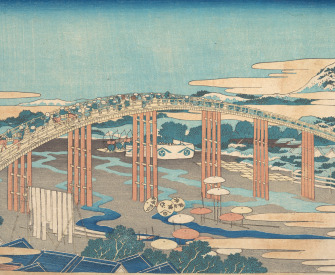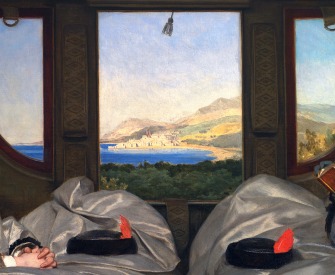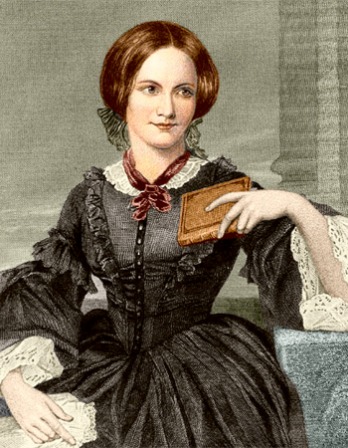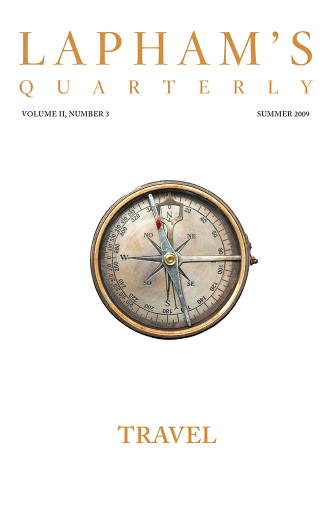Never make a defense or apology before you be accused.
—Charles I, 1636Noxious Fumes
William Hazlitt on the “trump of ill fame.”
There is nothing in which all the world agree but in running down some obnoxious individual. It may be supposed that this is not for nothing, and that they have good reasons for what they do.
On the contrary, I will undertake to say that so far from there being invariably just grounds for such a universal outcry, the universality of the outcry is often the only ground of the opinion, and that it is purposely raised upon this principle, that all other proof or evidence against the person meant to be run down is wanting. Nay, further, it may happen, while the clamor is at the loudest; while you hear it from all quarters; while it blows a perfect hurricane; while “the world rings with the vain stir”—not one of those who are most eager in hearing and echoing it knows what it is about, or is not fully persuaded that the charge is equally false, malicious, and absurd. It is like the wind, that “no man knoweth whence it cometh, or whither it goeth.” It is vox et praeterea nihil [a voice and nothing more]. What then is it that gives it its confident circulation and its irresistible force? It is the loudness of the organ with which it is pronounced, the stentorian lungs of the multitude; the number of voices that take it up and repeat it because others have done so; the rapid flight and the impalpable nature of common fame that makes it a desperate undertaking for any individual to inquire into or arrest the mischief that, in the deafening buzz or loosened roar of laughter or of indignation, renders it impossible for the still small voice of reason to be heard, and leaves no other course to honesty or prudence than to fall flat on the face before it as before the pestilential blast of the desert, and wait till it has passed over. Thus everyone joins in asserting, propagating, and in outwardly approving what everyone, in his private and unbiased judgment, believes and knows to be scandalous and untrue. For everyone in such circumstances keeps his own opinion to himself and only attends to or acts upon that which he conceives to be the opinion of everyone but himself. So that public opinion is not seldom a farce, equal to any acted upon the stage. Not only is it spurious and hollow by one man’s taking up at secondhand the opinion of another, but worse than this, one man takes up what he believes another will think, and which the latter professes only because he believes it held by the first! All therefore that is necessary to control public opinion is to gain possession of some organ loud and lofty enough to make yourself heard, that has power and interest on its side; and then no sooner do you blow a blast in this trump of ill fame, like the horn hung up by an old castle wall, than you are answered, echoed, and accredited on all sides: the gates are thrown open to receive you, and you are admitted into the very heart of the fortress of public opinion and can assail from the ramparts with every engine of abuse, and with privileged impunity, all those who may come forward to vindicate the truth, or to rescue their good name from the unprincipled keeping of authority, servility, sophistry, and venal falsehood! The only thing wanted is to give an alarm—to excite a panic in the public mind of being left in the lurch, and the rabble (whether in the ranks of literature or war) will throw away their arms, and surrender at discretion to any bully or impostor who, for a consideration, shall choose to try the experiment upon them!
What I have here described is the effect even upon the candid and well-disposed—what must it be to the malicious and idle, who are eager to believe all the ill they can hear of everyone; or to the prejudiced and interested, who are determined to credit all the ill they hear against those who are not of their own side? To these last it is only requisite to be understood that the butt of ridicule or slander is of an opposite party, and they presently give you carte blanche to say what you please of him. Do they know that it is true? No, but they believe what all the world says till they have evidence to the contrary. Do you prove that it is false? They dare say that if not, that something worse remains behind; and they retain the same opinion as before, for the honor of their party. They hire someone to pelt you with mud and then affect to avoid you in the street as a dirty fellow. They are told that you have a hump on your back and then wonder at your assurance or want of complaisance in walking into a room where they are without it. Instead of apologizing for the mistake, and from finding one aspersion false, doubting all the rest, they are only more confirmed in the remainder from being deprived of one handle against you and resent their disappointment, instead of being ashamed of their credulity. People talk of the bigotry of the Catholics and treat with contempt the absurd claim of the popes to infallibility—I think with little right to do so. I walk into a church in Paris, where I am struck with a number of idle forms and ceremonies, the chanting of the service in Latin, the shifting of the surplices, the sprinkling of holy water, the painted windows “casting a dim religious light,” the wax tapers, the pealing organ: the common people seem attentive and devout and to put entire faith in all this—why? Because they imagine others to do so, they see and hear certain signs and supposed evidences of it, and it amuses and fills up the void of the mind, the love of the mysterious and wonderful, to lend their assent to it. They have assuredly, in general, no better reason—all our Protestant divines will tell you so. Well, I step out of the church of St. Roche and drop into an English reading room hard by. What am I the better? I see a dozen or a score of my countrymen, with their faces fixed and their eyes glued to a newspaper, a magazine, a review—reading, swallowing, profoundly ruminating on the lie, the cant, the sophism of the day! Why? It saves them the trouble of thinking; it gratifies their ill humor and keeps off ennui! Does any gleam of doubt, an air of ridicule, or a glance of impatience pass across their features at the shallow and monstrous things they find? No, it is all passive faith and dull security; they cannot take their eyes from the page, they cannot live without it.

William Hazlitt
From “On Public Opinion.” Inspired by the paintings of Titian and Annibale Carracci, Hazlitt as a young man attempted a career as a painter, traveling to Paris in 1802 to copy at the Louvre. He became disillusioned with painting, however, and shifted his studies to metaphysics. In his thirties, penniless, he reinvented himself again as a journalist, critic, and essayist, establishing a reputation for ruthless wit. “Unraveling the web of human life into its various threads of meanness,” he wrote in an 1826 essay, “have I not reason to hate and to despise myself? Indeed, I do, and chiefly for not having hated and despised the world enough.”




